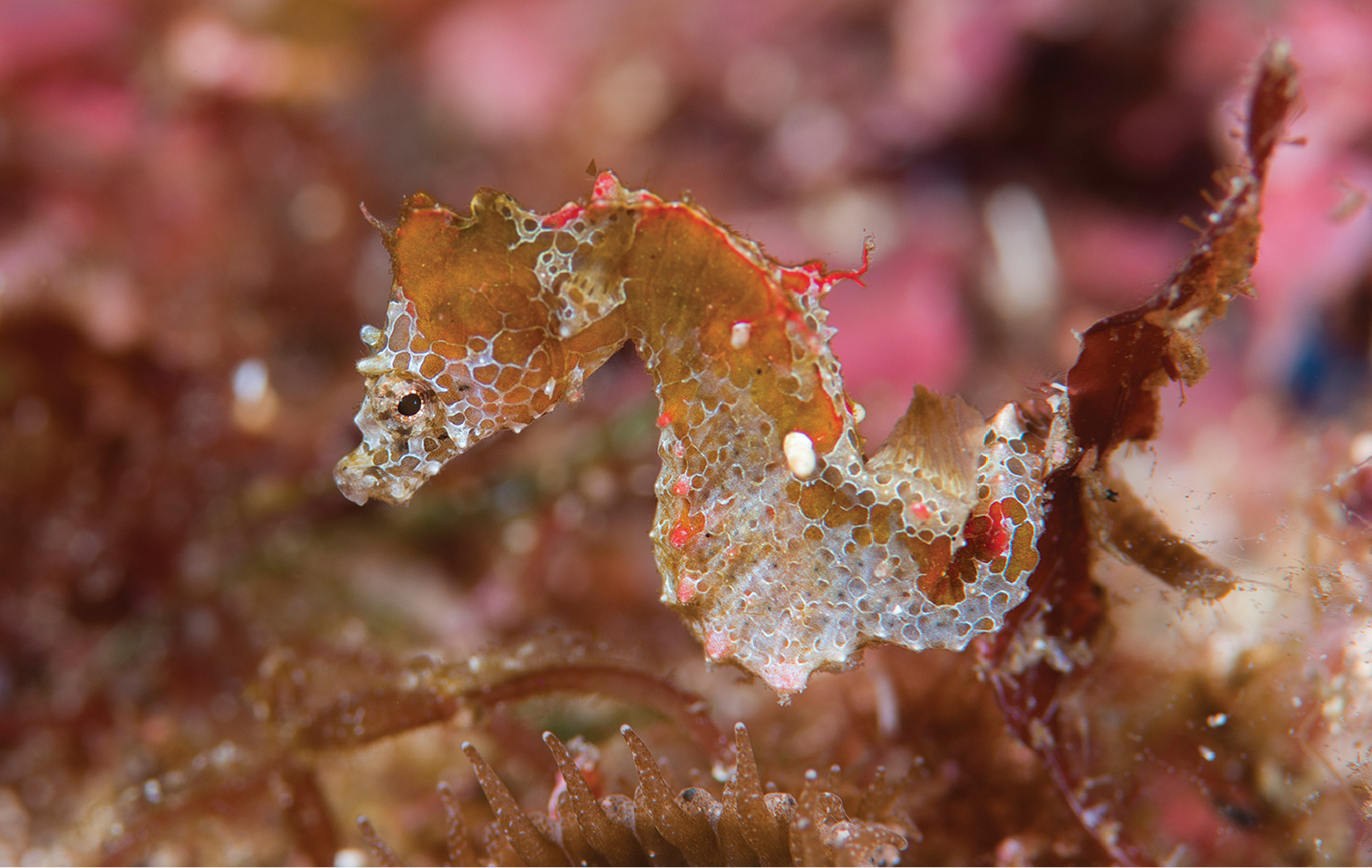These Newfound Seahorses Are So Tiny That Hundreds of Them Would Fit in Your Hand

A newly discovered seahorse may be tiny, but it's making large waves by just being plain adorable.
The Japan pig, or Hippocampus japapigu, is smaller than the width of an average index finger. Local scuba divers had seen the species, but only recently did a group of researchers study the seahorse, documenting their observations on Aug. 2 in the journal ZooKeys.
Just 15 to 16 millimeters in length, the Japan pig joins a group of six other known pygmy seahorses, those that are notorious for their tininess. This colorful species eluded scientists for some time, easily blending in with their coral and algae-filled habitat. [See the World's Cutest Sea Creatures]
But recently this international group of researchers captured photos of the creatures while scuba diving off the coast of the Izu Islands in southeast Japan. They brought three of the seahorses to the lab for DNA testing and further imaging.
They found that the Japan pig has only one pair of "large, truncate spines" that form a wing-like structure on its back, while other pygmies typically have two. Further, this new species has some triangular bony mounds on its upper back, which are absent in other species. The function of these mounts is unclear, though they could be used to attract mates, according to National Geographic. Finally, the Japan pig sports a white and brown lattice pattern not typically seen in other species.
But enough about looks. As to their personality, these teeny creatures "seem to be quite active, even playful," lead author Graham Short, of the California Academy of Sciences in San Francisco, told National Geographic.
Short also noted that this species isn't rare and is found in several places throughout eastern Japan. There are some species of larger seahorses that have been diminishing in number due to their popularity in traditional Chinese medicine and aquariums, according to the National Geographic. But Short said he's not worried about the Japan pigs. Since they're so tiny, they're good at slipping by unnoticed.
Sign up for the Live Science daily newsletter now
Get the world’s most fascinating discoveries delivered straight to your inbox.
Originally published on Live Science.

Yasemin is a staff writer at Live Science, covering health, neuroscience and biology. Her work has appeared in Scientific American, Science and the San Jose Mercury News. She has a bachelor's degree in biomedical engineering from the University of Connecticut and a graduate certificate in science communication from the University of California, Santa Cruz.









